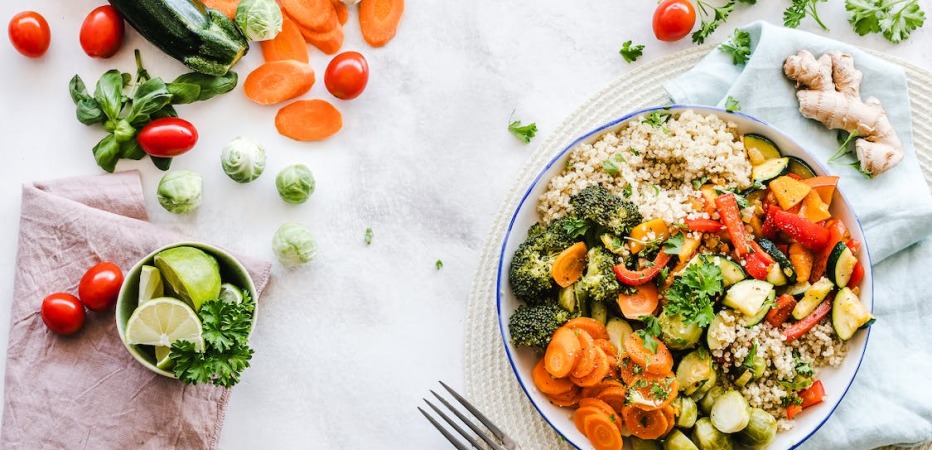The first week of every January is characterized by intense feelings of anxiety about the pounds we - probably - put on during Christmas holidays. The comments at family dinner tables are so common, with almost everyone of us already "mourning" the possible small increase on the scales and thinking about it with worry and regret while enjoying the Christmas treats. "I hope this piece of Christmas pudding will make me taller instead of fat" or "Another year of not having a beach body" and so on. So I'm here to reassure you and tell you that you don't need to panic about the few pounds that might be added these days, nor do you need to over-analyze it. Why?
A small increase on the scale does not automatically mean an increase in body fat, as we may have heard and mistakenly believed. We have all, more or less - increased salt consumption (increased intake of meat and salty snacks) and carbohydrate intake (mainly sweets, turkey stuffing, pasta & potato salads, etc.), dietary factors that lead to increased fluid retention. So, the number you see on the scale, is a result of increased fluid retention, and it's a matter of days and some smart practices to be able to eliminate it. So let's see, the nutritional do's & don't(s), after the Christmas holidays.
- Increase your fluid intake, effectively boosting your hydration levels. A dehydrated body will not be able to effectively deal with fluid retention as it will need the water it retains. Always keep a water bottle nearby and take small sips at regular intervals.
- Choose herbal teas that will help you deal with fluid retention, such as nettle and taraxacum, which have diuretic properties. Holland & Barrett provides a very wide range of herbs, such as nettle, peppermint, ginger, mountain tea, etc.
Extra tip: Fennel and peppermint also help deal with intestinal bloating, while ginger can aid symptoms of heartburn and indigestion.
- Choose seasonal fruits and vegetables that are rich in water - which help with retention and dietary fibre, which help with satiety and effective digestive function, as well as with vitamins and minerals, which are essential for our overall health.
- Increase potassium intake. Increased potassium intake is an ally in dealing with excess sodium (salt) and therefore fluid retention. Potassium-rich foods include fruits, vegetables, dairy products and legumes. Also, a potassium supplement can be another tool in this effort.
- Increase magnesium intake. Another electrolyte - after potassium - that will not only support the effective treatment of retention, but will also help reduce stress, which may have returned after Christmas holidays. Choose magnesium-rich foods such as nuts and nut butters, bananas, avocados, dark chocolate and consider taking a supplement that suits your needs.
- Say yes to plant-based protein. If you're not a vegetarian, you definitely ate a little more meat over the holidays. And that's okay. Legumes, nuts, and soy products are great options for both plant protein and fiber, two of the most important ingredients in achieving satiety and thus more effective weight management.
- Don't fall into the trap of a too restrictive diet. If the holidays are over and you're thinking, "I'm never eating anything again, just meat and salad," it's time to reconsider. Deprivation causes intense stress and a feeling of threat to the body, which will do everything it can to get what you deprive it of. Thus, very restrictive diets, while they may lead to rapid weight loss in the short term, they do not have the same results in the long term, and pose many risks to mental health and are - often - the trigger for the appearance of possible eating disorders.
- Do not count calories. There is absolutely no reason to count calories. And if you do count them, what does this mean for you? Do you know how to interpret the amount of calories each food contains? Based on what criteria will you come to the conclusion whether that food has too many or too few calories for you? Intense calorie counting is the most appropriate pathway for the appearance of eating disorders.\
- Do not exclude foods and/or whole food groups from your diet. No food and no food groups are forbidden in our diet, unless there is a food allergy or intolerance! Excluding foods - sooner or later - leads to overeating them. We don't exclude foods - we just adjust their consumption. Holland & Barrett provides a range of nutritious, protein and fibre-rich foods that we can use to create delicious savory and sweet recipes that will keep us full.
- Your relationship with food is a prerequisite on achieving a healthy weight in the long term. No matter how many efforts you make regarding your weight management, if you don't work on your relationship with food, how you deal with it, what you believe around it, how it makes you feel, etc., then the efforts will continue without long-term results.
We wish you a happy and creative year, with more physical and mental well-being for everyone!














